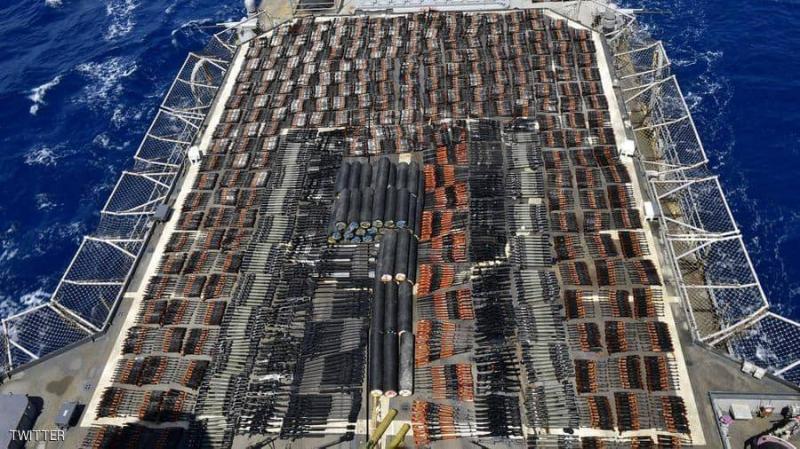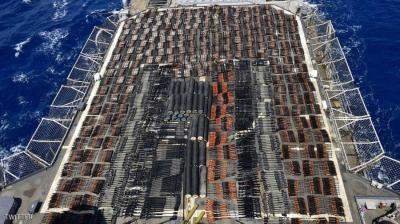The Global Initiative Against Transnational Organized Crime stated that weapons provided by Iran to its Houthi allies in Yemen are being smuggled across the Gulf of Aden to Somalia, where fighters from the al-Shabaab movement associated with al-Qaeda battle a weak and divided government. The initiative, a research organization based in Geneva, mentioned that its report was based on data from over 400 weapons documented at 13 sites across Somalia over eight months, as well as stockpiles from 13 boats intercepted by military vessels. This is the first publicly announced study of the scale of arms smuggling from Yemen to the Horn of Africa country.
The study, which is set to be published on Wednesday, states, "Weapons sourced from the arms trade between Iran and Yemen are being smuggled to Somalia." It added, "Iran has consistently denied any involvement in arms smuggling to the Houthis. However, there is considerable evidence indicating supplies from the Iranian state." The Iranian Foreign Ministry and a spokesperson for the Yemeni Houthis did not respond to requests for comments on the study. Iran has repeatedly denied any involvement in smuggling arms to its Houthi allies in Yemen, where tens of thousands have died in the ongoing civil war for six years.
The spokesperson for the Somali government and the Minister of Internal Security did not respond to calls or messages requesting comments. The study noted that investigators were unable to fully document buyers and sellers of weapons. However, it clarified that signs indicating the weapons originated from the Iranian state include serial numbers that are very closely grouped, suggesting they are part of the same shipment, information from satellite navigation systems of the seized boats, as well as intelligence from smuggling gangs.
The report mentioned that one of the boats carrying weapons, which was seized by a U.S. Navy vessel, had a GPS system with locations stored in Iran, southern Yemen, and Somalia, including a small dock near the port of Jask, which hosts an Iranian naval base, and Yemen's Al-Mukalla port, known for arms smuggling. The study concluded that the arms end up with smuggling networks that may include customers like armed factions seeking an advantage ahead of the repeatedly postponed Somali presidential elections, as well as tribal militias and competing Islamic rebel groups linked to al-Qaeda and the Islamic State.




